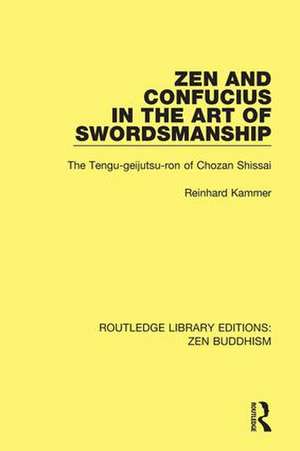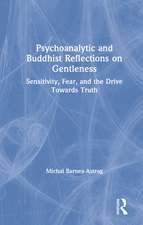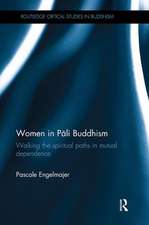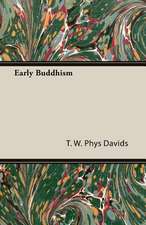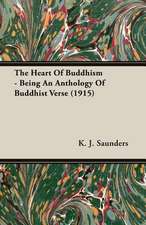Zen and Confucius in the Art of Swordsmanship: The 'Tengu-geijutsu-ron' of Chozan Shissai: Routledge Library Editions: Zen Buddhism
Autor Reinhard Kammeren Limba Engleză Hardback – 26 apr 2016
| Toate formatele și edițiile | Preț | Express |
|---|---|---|
| Paperback (1) | 356.44 lei 6-8 săpt. | |
| Taylor & Francis – 2 oct 2017 | 356.44 lei 6-8 săpt. | |
| Hardback (1) | 680.73 lei 6-8 săpt. | |
| Taylor & Francis – 26 apr 2016 | 680.73 lei 6-8 săpt. |
Preț: 680.73 lei
Preț vechi: 1027.40 lei
-34% Nou
Puncte Express: 1021
Preț estimativ în valută:
130.25€ • 135.100$ • 107.80£
130.25€ • 135.100$ • 107.80£
Carte tipărită la comandă
Livrare economică 05-19 aprilie
Preluare comenzi: 021 569.72.76
Specificații
ISBN-13: 9781138658103
ISBN-10: 1138658103
Pagini: 138
Dimensiuni: 156 x 234 mm
Greutate: 0.45 kg
Ediția:1
Editura: Taylor & Francis
Colecția Routledge
Seria Routledge Library Editions: Zen Buddhism
Locul publicării:Oxford, United Kingdom
ISBN-10: 1138658103
Pagini: 138
Dimensiuni: 156 x 234 mm
Greutate: 0.45 kg
Ediția:1
Editura: Taylor & Francis
Colecția Routledge
Seria Routledge Library Editions: Zen Buddhism
Locul publicării:Oxford, United Kingdom
Public țintă
Postgraduate and UndergraduateCuprins
1. Introduction: A Survey of the Historical Development of Japanese Swordsmanship 2. Chozan Shissai’s Interpretation of the Japanese Art of Swordsmanship 2.1. Text and Author 2.2. Philosophical Trends and Objectives 2.3. The Role of Confucianism 2.4. The Role of Zen Buddhism 2.5. Form and Technique 2.6. Instruction and Learning 3. Tengu-geijutsu-ron (Discourse on the Art of the Mountain Demons) Appendix 1. Japanese Names for Swordsmanship throughout History Appendix 2. Important Schools of Swordsmanship
Descriere
The sword has played an important role in the Japanese consciousness since ancient times. The earliest swords, made of bronze or stone, were clearly, by their design and form, used for ritualistic purposes rather than as weapons. Later, swords were associated only with the warrior class, and lack of physical strength and battle experience was compensated for by handling the sword in a way that was technically expert. Besides this sacred and artistic status, swordsmanship also acquired a philosophical reinforcement, which ultimately made it one of the Zen ‘ways’. Zen Buddhism related the correct practice of swordsmanship to exercises for attaining enlightenment and selfishness, while Confucianism, emphasizing the ethical meaning, equated it to service to the state. This classic text, first published in English in 1978, includes a history of the development and an interpretation of Japanese swordsmanship, now esteemed as an art and honoured as a national heritage. It describes in detail the long, intensive and specialized training and etiquette involved, emphasizing and explaining the importance of both Zen and Confucian ideas and beliefs.
